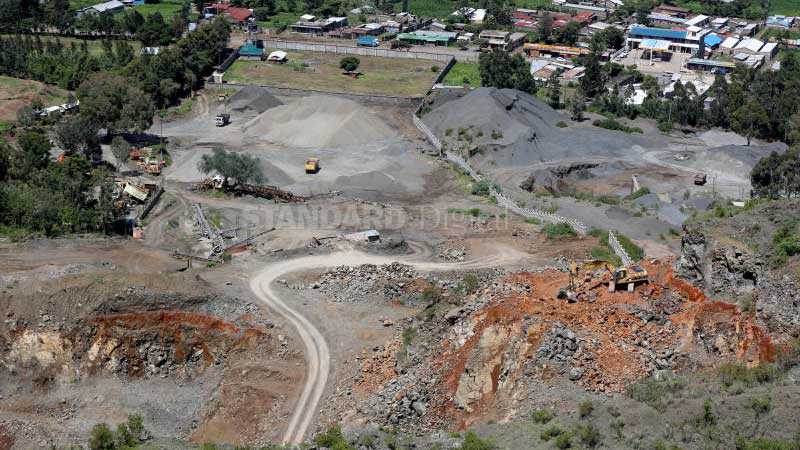×
The Standard e-Paper
Stay Informed, Even Offline

Koigi wa Wamwere works in his radio station at Engashura area, a few kilometres north of Nakuru town, but it feels like he is in a war zone.?
This is because Mr Koigi, a veteran politician, lives near two stone quarries where daily mining explosions reverberate through his floor, rattle walls and scramble his brains.?